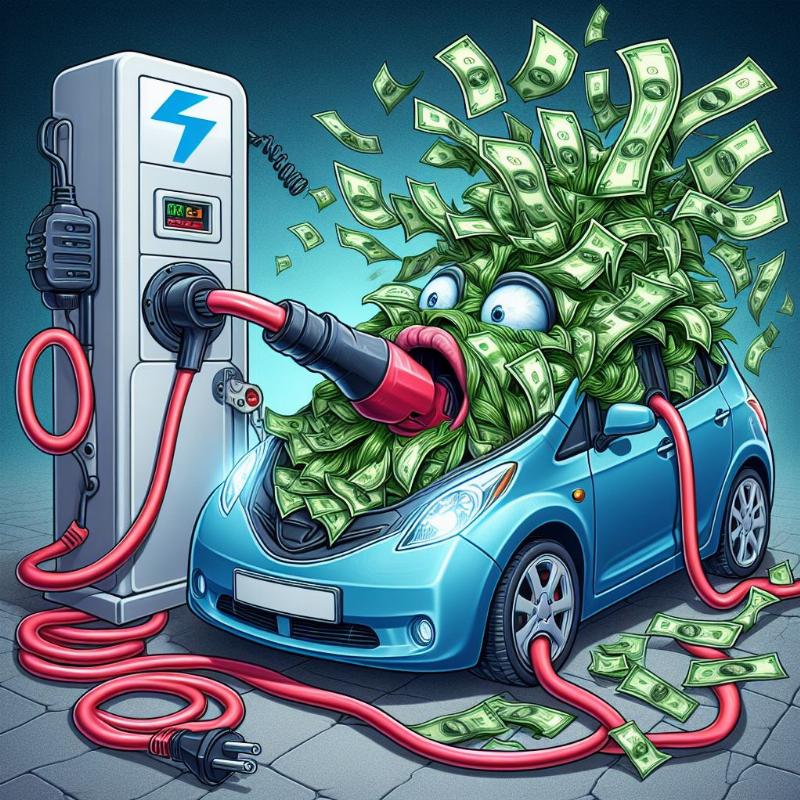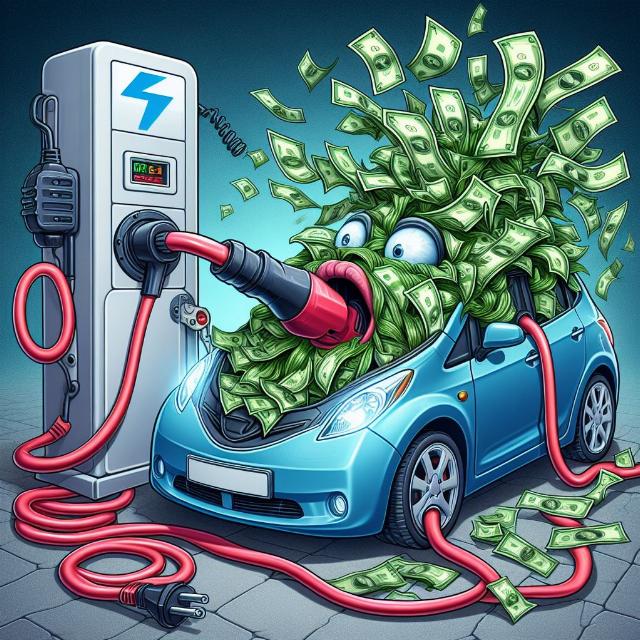


When an industry requires endless subsidization, that means it’s signaling a lack of potential—both short-term and long-term—so it’s probably a bad investment.
According to Matt Oliver at The Telegraph, new numbers from the electric vehicle industry show that these cars are depreciating rapidly, much faster than their gasoline counterparts; after just two years of ownership, these cars are worth less than half of what their owners originally paid. (I mean, we tried telling them these were foolish purchases, but they didn’t want to listen.) Here’s this, per Oliver:
A typical EV now retains only 49pc of its value after 24 months, a sharp decline from 83pc as recently as 2022, according to Cox Automotive.
For a new car bought for £40,000, this would translate to a value of just £19,600 after two years.
In 2022, the depreciation of E.V.s was 17% after two years—now it’s 51%. Oliver reports that what’s behind the serious depreciation trend are “discount wars” between manufacturers who are trying to get their product moving to “meet net zero sales targets”… since the E.V.s aren’t selling. From a Scripps News report in February:
Since 2010, sales of electric vehicles in the U.S. have consistently increased and in 2021, sales doubled. By 2023, nearly one in five cars sold in America was fully electric. However, the momentum faced a notable decline last year.
[snip]
Factors such as concerns over driving range, charging accessibility, and higher price points have contributed to this slowdown in EV sales. For instance, Tesla’s sales in California dropped by more than 11% in 2024, while new EV sales grew a mere 1%. Nationally, the growth rate for EV sales was just over 7% (7.3%), a stark contrast to the previous year's impressive gain of over 30% (32.6%) from 2022 to 2023.
You see, not many people want a car that takes a minimum of 45 minutes to “gas up,” that is, if you can even find a charger; the idea that your car won’t actually even function under certain weather conditions is a major turn-off; and who wants to pay higher insurance premiums if you don’t have to?
Now, compare the E.V. depreciation numbers to those of a gasoline car—gas-car depreciation only reaches the 50% threshold after five years:
A brand new car usually drops about 20% in value after one year. Within five years, it will be worth around 60% less than the price you paid.
Oliver quotes Philip Nothard, an executive with Cox Automotive, who says this:
‘This [depreciation news] gives consumers very little incentive to consider them [used E.V. models], which is a real blow to a market that needs all the incentives it can get its hands on.’
The market can’t survive without government intervention, which means the product is not ready for the market. Seems simple, yet predictably, the simplest of concepts routinely escape those useful idiots on the left.
Unfortunately, we’re also paying for their ignorance.

Image generated by AI.
